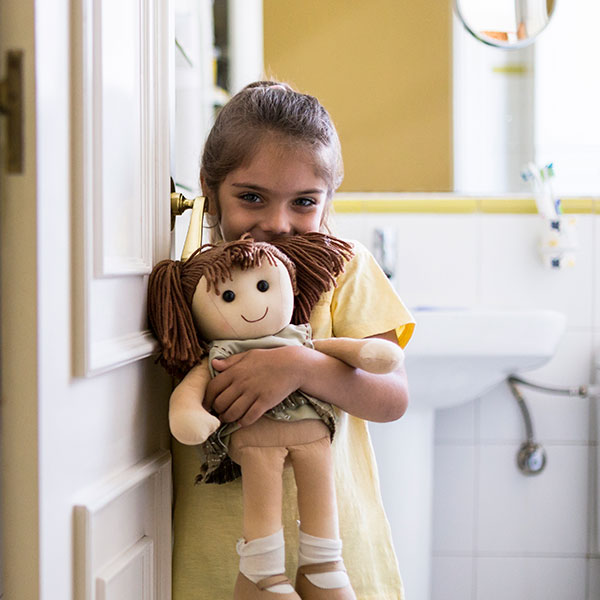About Trauma Informed Care
The Office of Children, Youth and Families has developed and collected many trauma tools and resources that may be helpful for child welfare stakeholders and providers as they proceed on their trauma informed care continuum. These resources may be used for creating and sustaining trauma-informed programs, policies, and practices across the state, as well as improving collaboration with families to improve their involvement. These resources may also be useful to families that are served through the child welfare and juvenile justice community.
Creating a Trauma Sensitive Space
The Sensitivity Suite is schedules to return to the Statewide Permanency Conference in 2025.
The Sensitivity Suite is a place where conference attendees are offered a serene environment to unwind and regain balance. This space is dedicated to highlighting the significance of self-care and tuning in to oneself within a learning environment and will be made available during session times for the conference.
Purpose:
Our goal is to foster a culture where well-being is prioritized, recognizing that taking care of ourselves enhances our ability to learn, grow, and succeed. The Sensitivity Suite was created as a haven where you can relax, re-center, and return to the conference feeling refreshed.
Features:
- Comfortable Seating: Cozy armchairs invite you to sit back and relax.
- Soothing Ambiance: Soft, warm lighting and calming colors create a tranquil atmosphere.
- Nature Elements: Potted plants and nature-themed decor bring the serenity of the outdoors inside.
- Quiet Zones: The Sensitivity Suite is a designated quiet area allowing for meditation, reflection, or a brief respite.
- Mindfulness Resources: Access to mindfulness, grounding techniques, and other stress-relief activities. Please see the table inside for these items.
- We invite you to make use of this space at your discretion. Remember, self-care is important when taking in increased information and processing our learning journey. Enjoy your time in the Sensitivity Suite and return to the sessions feeling rejuvenated.
The Sensitivity Suite is sponsored by the Department of Human Services, the Office of Children, Youth, and Families, and the OCYF Trauma Team.

Trauma-Informed PA Plan
The Trauma-Informed PA Plan makes recommendations and actionable steps to make Pennsylvania a trauma-informed state.
Trauma-Informed PA Plan (PDF)
Trauma Toolbox
We recognize the widespread burden secondary trauma and workplace stress is having on the workforce and families that staff work with; That’s why we created the Trauma Toolbox -- a collection of helpful resources all in one easy-to-access place.
Get the tools you need
Trauma Informed Care Tool for OCYF
The following assessment form was developed to provide a monitoring tool for use in assessing the progression of PA's County Children and Youth, foster care, and adoption agencies along the Trauma Informed PA (TIPA) Continuum.
Download the TIC Tool for OCYF
Survey (OCYF version)
The survey is designed to help organizational leaders assess and tell us about the organization's efforts to develop and sustain trauma informed practices.
Download the Survey-
December 2024 What Does Trauma Have to Do with The Workplace?
-
November 2024 Trauma-Informed Workforce Development
-
October 2024 What is Resilience?
-
September 2024 Dan Siegel’s Window of Tolerance
-
August 2024 Why does trauma get trapped in the body? What may help to release this energy?
-
July 2024 Trauma Informed Child Welfare Practice
-
June 2024 Prevalence of Mental Health Challenges in the Workforce/Organizational Trauma-Informed Care
-
May 2024 Dr. Bruce Perry’s 3 R’s: Helpful Tips for Regulation
-
April 2024 Self-Care Tips/Daily Self Care Checklist
-
March 2024 Trauma-Informed Care during Recruitment
-
February 2024 Mindfulness Tip Sheet
-
Happy New Year January 2024 Grounding Technique Tip Sheet
-
December 2023 Seasonal Wellness and Selfcare
-
November 2023 Cultural Humility and Trauma Informed Care
-
September 2023 Mindfulness
-
August 2023 Telework and Trauma-Informed Approaches
-
July 2023 Mindful or Mind Full?
-
June 2023 Hope Beyond Hurt
-
May 2023 Mindfulness and the Brain – teaching mindfulness to children
-
April 2023 National Child Abuse Month Information
-
March 2023 6 Guiding Principles of Trauma-Informed Approach
-
February 2023 Black History Month and Cultural and Historic Trauma
-
January 2023 Mindfulness and Self-Care through the Holiday Season
-
December 2022 Have a Trauma-Informed Holiday Season
-
November 2022 The four R’s of Trauma-Informed Care/Children Learn What They Live
-
October 2022 Returning to School Post Covid-19/Halloween Tips
-
September 2022 The Realms of ACEs
-
August 2022 Compassion Fatigue and Secondary Trauma
-
July 2022 Using Trauma-Informed Language
-
June 2022 The Physical Impact of Trauma/Evaluating Trauma-Informed Care
-
May 2022 Trauma-Informed Support for Children
-
April 2022 Child Abuse Prevention Month/Responding to a Child Revealing Abuse or Neglect
-
March 2022 Impact of Childhood Trauma/Coping Strategies
-
February 2022 Why Does Trauma-Informed Care Matter?
The Pennsylvania Department of Human Services (DHS), which is in part comprised of the Office of Children, Youth, and Families (OCYF) complies with applicable Federal civil rights laws and does not discriminate on the basis of race, color, national origin, age, disability, or sex.






